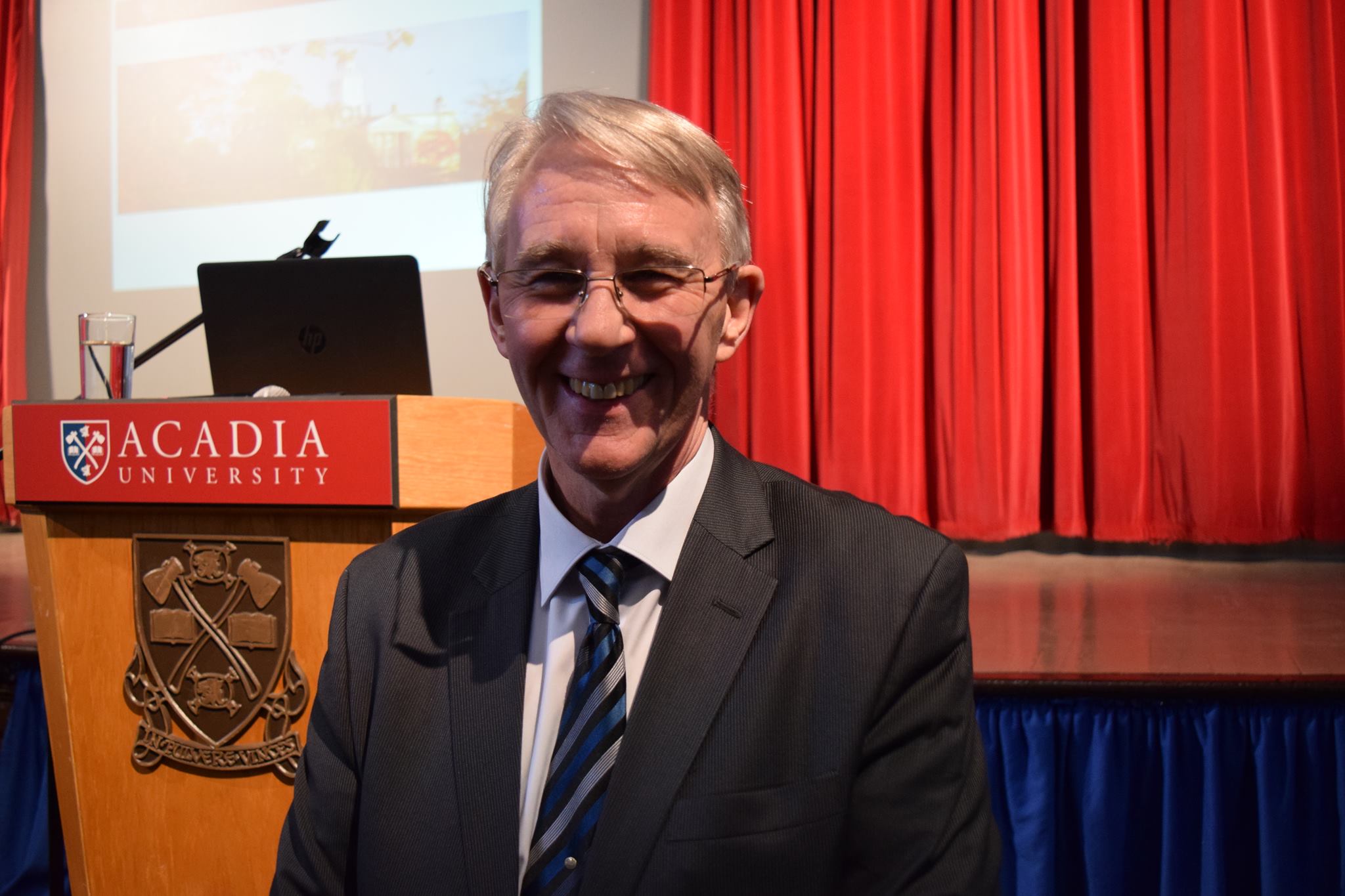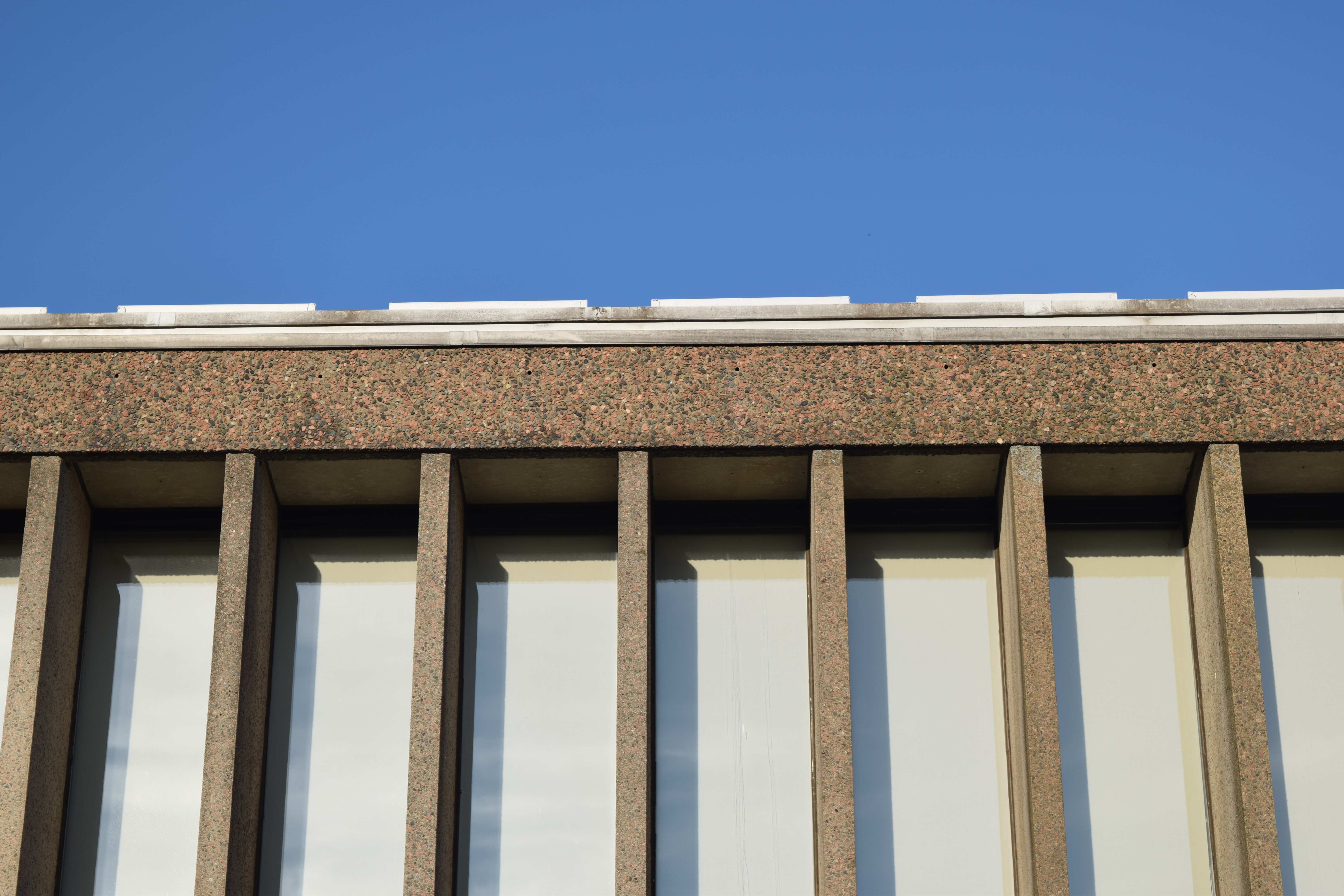Acadia University has a new President and Vice Chancellor: Dr. Peter Ricketts.
He was voted by the Board of Governors to serve as Acadia’s sixteenth president and vice chancellor upon recommendation of the Presidential Search Committee, that had been tasked with finding a suitable candidate. This involved getting in touch with over 210 potential candidates, interviewing 64, and presenting a list of 10 to the Committee. It ultimately came down to campus visits between two finalists, of which Dr. Ricketts was one.
Hailing from the southern shores of the United Kingdom, Dr. Ricketts is an expert in geography and environmental studies with special emphasis on integrated coastal and ocean management. He has taken posts across Canada, from Dalhousie to UBC to Nipissing and Carleton, where he is currently Provost and Vice President academic.
Dr. Ricketts was attracted to Acadia by its reputation, noting that he was “[v]ery drawn to the opportunity to spend the last part of [his] career in a leadership role at a university that is very focused around the student experience”. His expertise working at all ends of administration has given him a deep appreciation of Acadia’s model, where the focus on a student-centred liberal education is the mission of the university.
His vision of Acadia in the future is simple: “big”. Dr. Ricketts described that Acadia has a big role to play in an increasingly global world. Although we are a small university, he noted, it’s all about scale. “The future of Canadian universities is about becoming increasingly global,” he noted. By global he meant not just having more students abroad and more international students in Wolfville, but global throughout the extent of the university.
This involves building partnerships with likeminded institutions around the world, facilitating program links similar to the ones Acadia has with Dalhousie, building research bonds, and making faculty exchanges easier. In his conversation with students during his visit at Acadia he brought up the model that Wellesley College uses, making international experience mandatory, and the potential for expanding international opportunities at Acadia. Dr. Ricketts’ goal is to emphasize the value of a global education to ensure that it will be part of his legacy.
Research plays an integral part in his vision. Undergraduate research is crucial for a university education, which Dr. Ricketts considers one of the hallmarks of Acadia. “It’s not feasible at many institutions for undergraduates to engage in research and work with faculty members” in the way it is at Acadia, he noted. Also, having strong, niche graduate programs to complement undergraduate research is crucial to maximizing opportunities for students and faculty. His own research on the promotion and development of high level policy surrounding oceans, coastal management and climate change is a natural fit to Acadia, by virtue of the close relationship with the Minas Basin, Annapolis Valley, and Bay of Fundy.
When asked about assets and issues that Acadia faces Dr. Ricketts was optimistic. To him Acadia’s assets include its focus on the environment, individually focused student-centred learning, and our location in the world. Issues Acadia faces are issues that all post-secondary institutions are facing, he stated, such as tuition increases, tight budgets, and increasingly complex relationships with government. To him the most salient issue is the increasing skepticism of the value of a liberal education, something he believes must be vigorously challenged. He emphasized (quite like outgoing President Ray Ivany) “you can’t sit back and be complacent” at Acadia, and by maximizing partnerships with global institutions Acadia could generate new opportunities for its students and faculty.
Dr. Ricketts conducted a public lecture at University Hall on the March 23rd to describe his vision for Acadia. It was clear that he has a more humanistic vision of Acadia’s role in a global world. By promoting the Acadia brand through multilateral institutions like the the Maple League, Acadia is able to market its brand internationally. His strategy also involves building strong relationships with First Nations within Canada and in expanding opportunities in the United States. Emphasizing work with local First Nations, especially the Mi’kmaq, he noted that universities like Acadia will be central in contributing to the implementation of the recommendations of the Truth and Reconciliation Commission.
“Acadia can deliver a uniquely Canadian education that has values for all of us”, he said. “We need to adopt values that make us better people while delivering on a strong educational value proposition necessary for the 21st century”.




